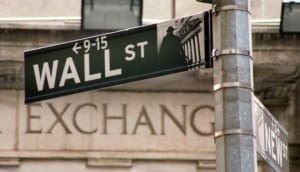 At the annual Wharton Finance Conference on Friday, Oct. 21, scores of MBA students devoted their day off from classes to donning their suits and organizing and attending the event. Titled “Shifting Paradigms: A New Era in Finance,” the conference did not disappoint in covering how the financial crisis and resulting recession impacted the industry.
At the annual Wharton Finance Conference on Friday, Oct. 21, scores of MBA students devoted their day off from classes to donning their suits and organizing and attending the event. Titled “Shifting Paradigms: A New Era in Finance,” the conference did not disappoint in covering how the financial crisis and resulting recession impacted the industry.
Speakers at the session “Navigating the Crisis” warned students of regulators who appear determined to monitor and control financial institutions like power utilities, which could result in the Wall Street’s current and future talent fleeing to more innovative and entrepreneurial sectors.
Banks are already on their way back to a core banking model, focusing on investment banking, flow-equity trading and FX, speakers said. They are getting rid of their noncore franchises and illiquid assets and building from a foundation of more stable capital.
Attendees listened to repeated assertions that finance professionals now believe in the cliché, “If it’s too good to be true, it probably is.” This healthy skepticism of every asset comes with a better understanding of risk and the time and energy taken to consider all the “what-ifs” in an interconnected world where a raindrop in one market causes a wave in another country.
Despite all these changes, or perhaps because of them, competition in the industry is as fierce as ever. Information is much easier to come by; it is no longer the competitive differentiator among traders. As one speaker put it, it is much tougher to make money.
Yet that is not to say opportunities don’t exist. The session speakers discussed the rise of mammoth private equity, pension and sovereign wealth funds. Central banks are also big clients.
Speakers at the “Navigating the Crisis” session included David Musto, Wharton’s Ronald O. Perelman Professor in Finance; Ed Rubin, C’82, WG’87, managing director of global banks at Deutsche Bank; Ish McLaughlin, head of flow credit sales at Citi; Tyler Schiff, WG’10, executive director of FX and emerging markets at Morgan Stanley; and Chris Condelles, vice president at Credit Suisse.

























